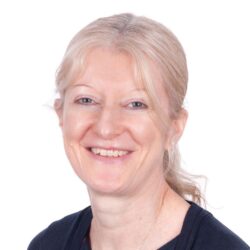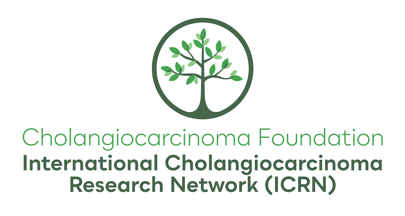| Name |
|
Mairead G McNamara Dr |
| Organization |
|
University of Manchester/The Christie NHS Foundation Trust |
| Can you tell us a bit about yourself? |
|
I am a Senior Lecturer and Honorary Consultant at the University of Manchester and The Christie NHS Foundation Trust, Manchester, United Kingdom (UK) since 2014. I completed my Medical training in Ireland and then did a three year clinical research fellowship in Princess Margaret Cancer Centre, Toronto, Canada before moving to the UK. Prior to studying Medicine, I was awarded a degree in Biochemistry and a PhD in Neuropharmacology (I spent 6 months of my PhD in the University of Mississippi Medical Centre, Jackson, Mississippi). I now treat patients with hepatopancreaticobiliary (HPB) malignancies and neuroendocrine neoplasms (NENs). |
| Can you share one or two of your specific research interests? |
|
My research interests span across the disease group malignancies that I treat (translational [specifically aiming to gain a better understanding of the biology of these diseases and identifying predictors for response, focusing on liquid biopsies and the microbiome] and clinical, including phase I to III clinical trials). |
| Why did you decide to specialize in hepatobiliary cancers? |
|
As I went through my specialist Medical Oncology training, I was most drawn to the sub-specialities of gastrointestinal cancer and neuro-oncology. In 2011, on commencing my clinical research fellowship in Toronto under the mentorship of the eternally enthusiastic and inspiring Professor Jennifer Knox, I became more exposed to patients with hepatobiliary malignancies and the burgeoning clinical and translational research in this area. I was introduced to the resources, people and societies behind these breakthroughs and ambitions, and wished to become an influential part of this evolutionary process. |
| Can you describe one of the unforgettable moments in your patients care or research that has impacted your career? |
|
I thought about this for a while and the "patient zero" for me was probably an inpatient that I saw as a Medical student when I was rotating through Medical Oncology in an Irish hospital. They had a very aggressive malignancy, with new subcutaneous lesions appearing daily, and they had exhausted all standard lines of treatment. I read up about the disease and came across a recent research abstract reporting on a novel therapeutic option. I told the registrar (resident) looking after the patient and they asked for a copy of the abstract and passed it on to the consultant (staff) responsible for the patient's care, and this was then taken into consideration as part of their management plan. From then on, Medical Oncology, with its associated potential for instigating meaningful changes in patient outcomes, was the path that I wanted to pursue. |
| Can you tell us one thing collaboration with colleagues could accomplish that you could not accomplish on your own? |
|
One can have an idea, but it takes many (junior to senior and multidisciplinary) to tease out, support and challenge the intricacies, allowing for more mature development of a potentially practice-changing initiative. |
| If you had access to one resource that would move your research forward, what would that resource be? |
|
A more integrated efficient system for opening clinical trials (investigator-initiated and commercial) in a significantly shorter time frame. |
| How did you learn about the Cholangiocarcinoma Foundation? |
|
I learnt about the Cholangiocarcinoma Foundation from Professor Jennifer Knox in Toronto, during my fellowship there, and was envious of her attendance at the annual conference, and being at the forefront of cholangiocarcinoma programmes, proposals and community. |
| Can you tell us why you became a member of the ICRN? |
|
I became a member of the ICRN to self-educate, integrate, collaborate and apprise myself of potential future therapeutic opportunities for patients with a diagnosis of cholangiocarcinoma. |

